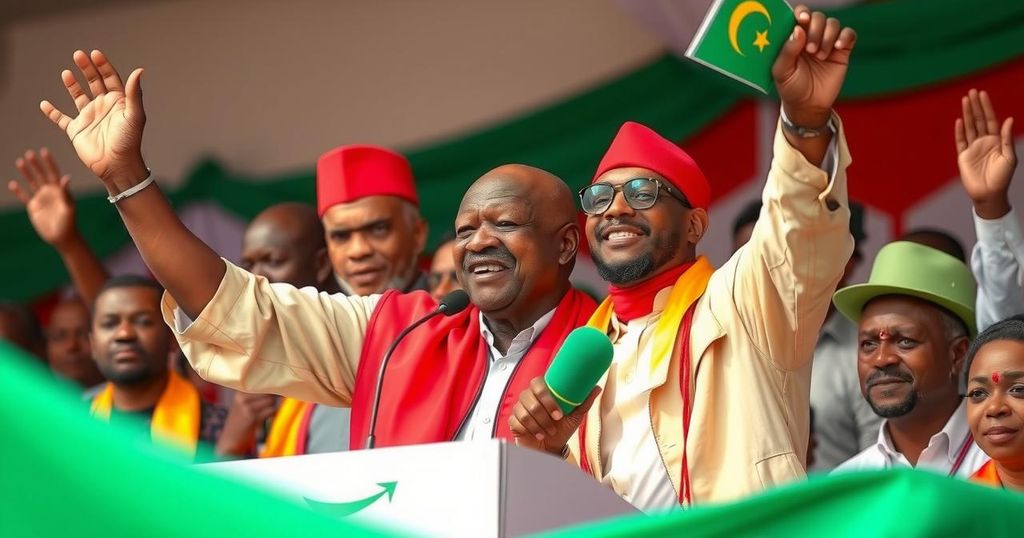World news
2024 ELECTIONS, AFRICA, AHMED BARTCHIRET, ASIA, BOKO HARAM, BURKINA FASO, CHAD, CHINA, COMMISSION, DEBY, ELECTIONS, EUROPE, FRANCE, GOVERNANCE, GOVERNMENT, MAHA, MAHAMAT DEBY, MAHAMAT IDRISS DEBY, MALI, NATIONAL ASSEMBLY, PARLIAMENTARY SEATS, PATRIOTIC SALVATION MOVEMENT, VOTER TURNOUT
Maya Ramirez
0 Comments
Chad’s Ruling Party Secures Parliamentary Majority Amid Controversy
Chad’s ruling Patriotic Salvation Movement wins 124 of 188 parliamentary seats in an election boycotted by major opposition parties, amidst concerns regarding legitimacy and a backdrop of significant security challenges.
In the recent parliamentary election held in Chad, the ruling Patriotic Salvation Movement, led by President Mahamat Idriss Deby, has claimed victory by securing 124 out of 188 National Assembly seats. This pivotal election, which saw a participation rate of 51.56%, was notably boycotted by more than ten opposition parties, including the prominent Transformers party. The opposition characterized the election as devoid of legitimacy, likening it to a prior disputed presidential vote conducted last year.
The parliamentary election, the first in over a decade, was presented by President Deby as a significant step towards establishing democracy in Chad following his assumption of power in 2021 after the death of his father, the long-serving Idriss Deby Itno. The legitimacy of the electoral process has been questioned, with opposition parties expressing concerns that it was merely a façade designed to maintain the current regime. This election follows a context of escalating security threats in Chad, alongside a governmental shift in military partnerships with former colonial power, France.
Deby, emphasizing the election’s importance, stated it would facilitate a long-awaited decentralization of power aimed at improving governance at provincial and municipal levels. However, the widespread boycott of the election by major opposition parties has raised doubts regarding the transparency and inclusiveness of the electoral process, with observers warning of a potential disregard for democratic norms as the country grapples with security challenges from groups such as Boko Haram and tensions resulting from military cooperation changes with France.
Overall, this election may significantly shape Chad’s political landscape, yet the questions surrounding its credibility persist as the ruling party asserts its dominance amidst mounting skepticism from opposition groups and civil society.
Chad has been undergoing a complex political transition since 2021 when Mahamat Idriss Deby, who was already a military leader, took control after the death of his father, Idriss Deby Itno, who ruled for over three decades. The government has been attempting to project an image of democracy through elections; however, opposition parties have frequently contested the credibility of these processes. This transition occurs against a backdrop of significant regional security challenges, including threats from extremist groups and fluctuating international military alliances.
The recent parliamentary election in Chad, characterized by low participation and a significant boycott by opposition parties, has resulted in the ruling party, under President Mahamat Idriss Deby, obtaining a substantial majority. This situation raises critical questions about the legitimacy of the electoral process and the future of democracy in Chad as the country faces serious security concerns and explores shifts in its foreign military ties.
Original Source: www.aljazeera.com




Post Comment